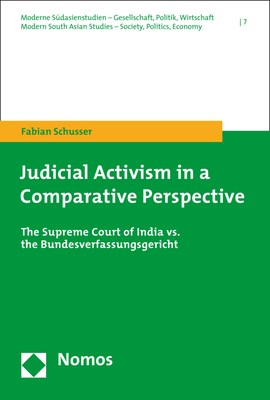
- We will send in 10–14 business days.
- Author: Fabian Schusser
- Publisher: Nomos Verlagsgesellschaft
- ISBN-10: 3848755661
- ISBN-13: 9783848755660
- Format: 15 x 22.6 x 1.3 cm, minkšti viršeliai
- Language: English
- SAVE -10% with code: EXTRA
Reviews
Description
This study investigates the phenomenon of judicial activism from a comparative perspective by examining the highest constitutional courts in India and Germany: the Supreme Court and the Bundesverfassungsgericht (Federal Constitutional Court) respectively. In addition to answering the question of what role these courts play in their countries' political institutional set-ups, the study explains to what extent they can be classed as powerful. Historical neo-institutionalism forms the study's theoretical basis, which it deploys in endeavouring to understand the courts' development and in identifying critical junctures in their histories.
EXTRA 10 % discount with code: EXTRA
The promotion ends in 23d.05:12:22
The discount code is valid when purchasing from 10 €. Discounts do not stack.
- Author: Fabian Schusser
- Publisher: Nomos Verlagsgesellschaft
- ISBN-10: 3848755661
- ISBN-13: 9783848755660
- Format: 15 x 22.6 x 1.3 cm, minkšti viršeliai
- Language: English English
This study investigates the phenomenon of judicial activism from a comparative perspective by examining the highest constitutional courts in India and Germany: the Supreme Court and the Bundesverfassungsgericht (Federal Constitutional Court) respectively. In addition to answering the question of what role these courts play in their countries' political institutional set-ups, the study explains to what extent they can be classed as powerful. Historical neo-institutionalism forms the study's theoretical basis, which it deploys in endeavouring to understand the courts' development and in identifying critical junctures in their histories.


Reviews